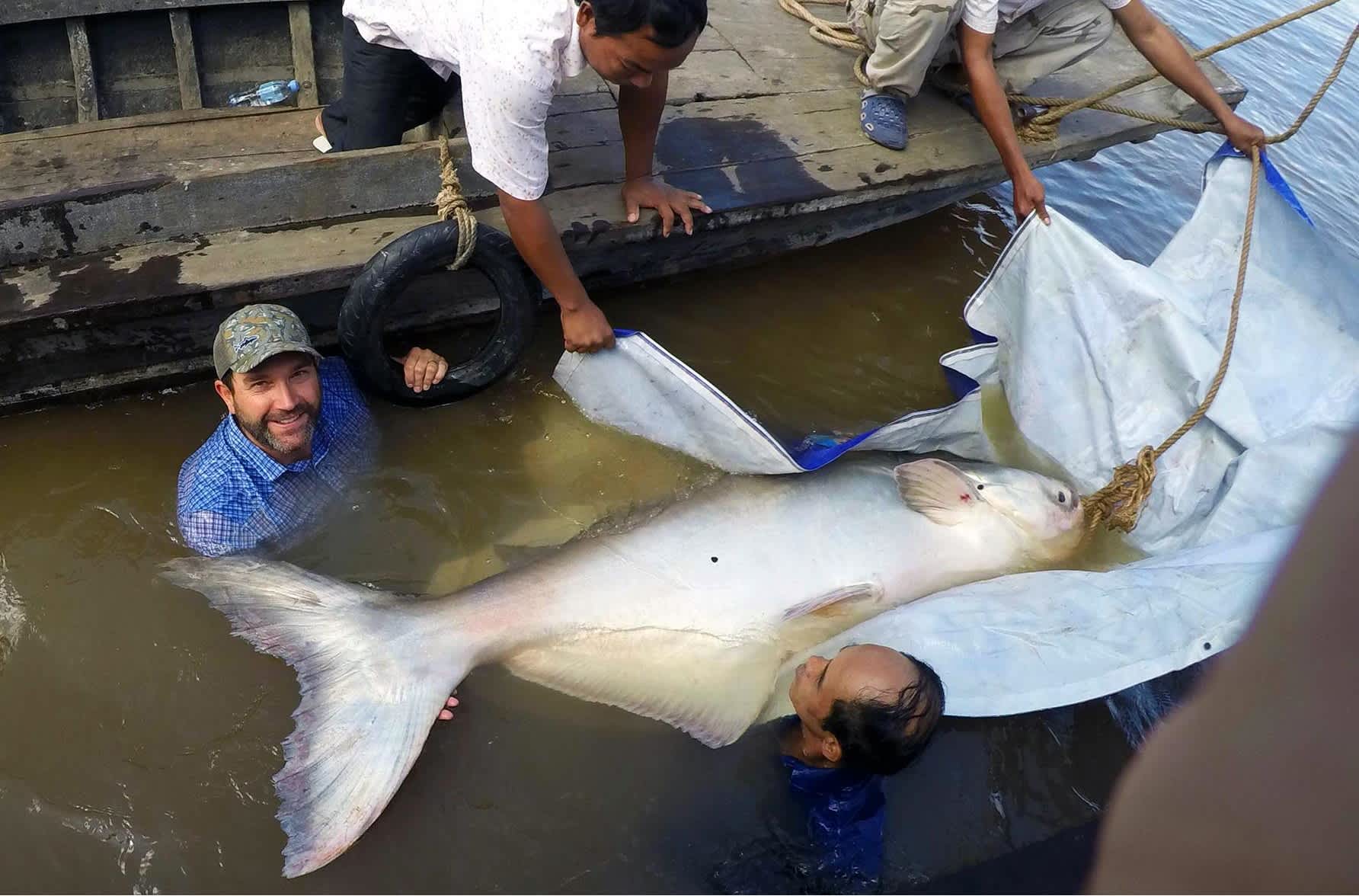Anglers in Cambodia Land Rare Mekong Giant Catfish
OutdoorHub Reporters 11.16.15

Catching the world’s largest freshwater fish is no easy task, but releasing it is an even more delicate matter. Zeb Hogan, a University of Nevada, Reno biologist and the host of National Geographic WILD’s Monster Fish, was on hand to help release a rarely-seen Mekong giant catfish after anglers in Cambodia caught it last Monday near Phnom Penh.
“This is really extraordinary,” Hogan said in a press release from the university. “It confirms that this incredibly rare and critically endangered freshwater species still occurs in Cambodia and it is still making its annual spawning migration out of the Tonle Sap Lake and into the Mekong River.”
Once an abundant species, the giant catfish is now only caught in Cambodia a few times each year. Hogan said that the fish the anglers caught on Monday was the first reported in 2015.
“At just under 7 feet in length, the catfish was larger than any catfish that has been caught in the U.S. in the last 100 years,” he said.
Mekong giant catfish average from 300 to 400 pounds and can grow well over seven feet in length. In 2005, a group of fishermen in Thailand hauled up a specimen that measured a staggering eight feet, 10 inches and over 640 pounds.
Unlike some other catfish species, the Mekong giants are notable in that they do not have barbels and lack teeth. The fish primarily live off a diet of algae.
“The Mekong Giant Catfish was once caught by the thousands but it’s so rare now that the survival of every fish makes a difference; survival of migrating adults is especially important,” Hogan explained. “With ongoing changes happening on the Mekong River that may cause the extinction of the giant catfish, measures to study and protect these fish are more important than ever.”
It is illegal to harvest a Mekong giant catfish, although some individuals choose to poach the fish.
The catfish caught on Monday was released in good shape and under the supervision of fisheries officials. Hogan dived down with the fish to ensure that it was swimming properly.
“Swimming with the fish was incredible as always,” the biologist recalled. “This particular fish was in better shape, not as injured, than most, so that makes me optimistic it will survive. What was really incredible is that I happened to be visiting at the time of the catch. It’s a one-in-a-million opportunity.”
Since Mekong giants are caught so rarely these days, fishermen in Cambodia view the fish as an omen of good luck.
“The giant catfish holds a special place in Cambodian culture,” biologist Thatch Phanara said. “Fishermen sprinkled water on it to wish it good luck.”

